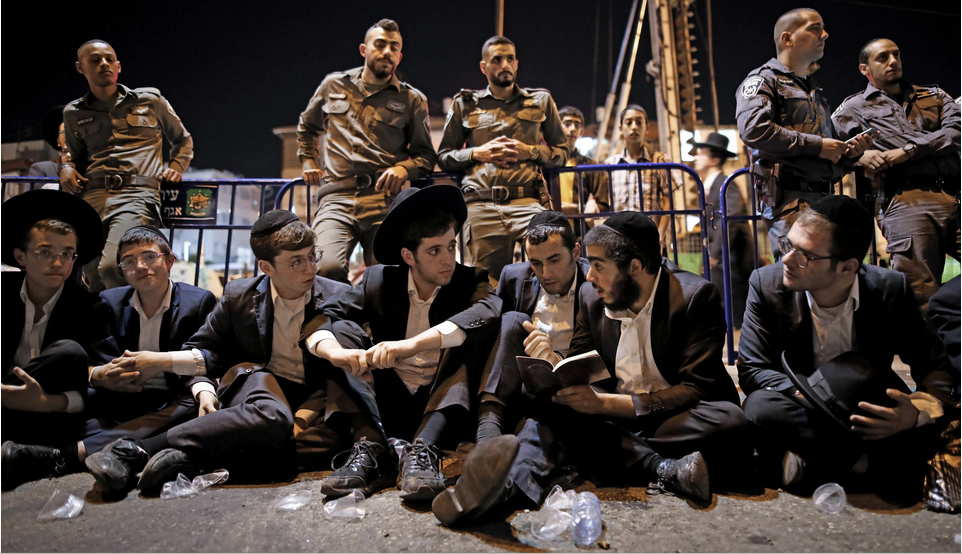. . .
At midnight on Wednesday, his deadline to form a government expired. He has only one, costly option now: sending Israeli voters back to the polls and starting over. It looks as if we’ll be voting again in mid-September.
How did this happen?
To really understand it, you have to go back many decades.
In Israel, all citizens are supposed to serve in the military or perform another type of national service. But one group has been relieved of this duty since the state was established: the ultra-Orthodox, known here as Haredim, who make up about 10 percent of the population. Thanks to their high birthrate, the Haredim double in number every 10 to 15 years. When deferment began in 1948 there were about 400 Haredim eligible for it. Today there are more than 50,000. According to Israel’s bureau of statistics, as much as a third of Israel’s population will be Haredi by 2065.
Young Haredi men study the Torah instead of wearing a uniform. Perhaps unsurprisingly, a vast majority of Israelis believe this is unfair.
The Supreme Court doesn’t like the arrangement either. In 2017, the court declared it unconstitutional and demanded new legislation that could withstand judicial review. Since then, the court agreed to grant the government a few postponements, but now the deadline is near. The new government, when formed, must pass a new law to continue the Haredim’s national service exemption. If it fails to do so, the court could decide that the arrangement is void, and prompt a political and social crisis by in essence ordering the state to draft many thousands of reluctant, disobedient, Haredim.




